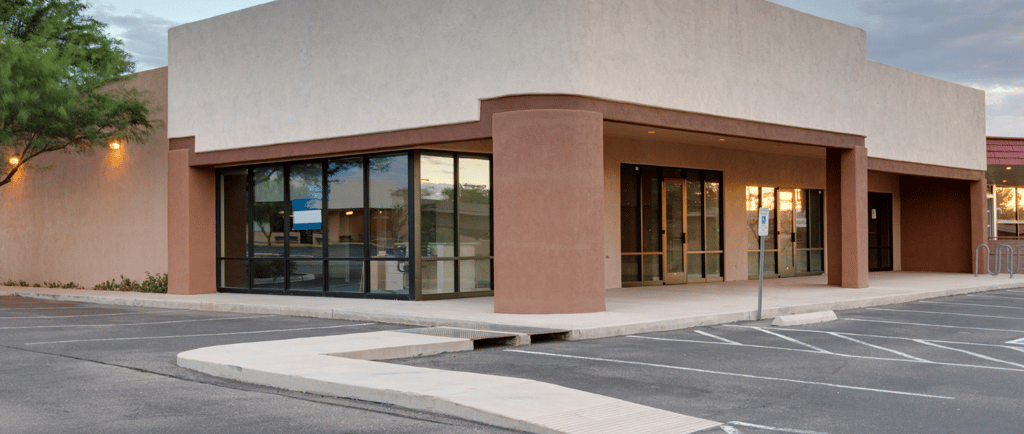What is a Commercial Building Inspection?
If you're planning to purchase, lease, or renovate a commercial property, one of the most important steps you can take is getting a commercial building inspection. This thorough evaluation not only provides a clear understanding of the property's condition but also uncovers any hidden issues that could lead to costly repairs or even jeopardize your investment. So, what exactly does a commercial building inspection entail, and why is it so crucial?


If you're planning to purchase, lease, or renovate a commercial property, one of the most important steps you can take is getting a commercial building inspection. This thorough evaluation not only provides a clear understanding of the property's condition but also uncovers any hidden issues that could lead to costly repairs or even jeopardize your investment. So, what exactly does a commercial building inspection entail, and why is it so crucial?
What is a Commercial Building Inspection?
A commercial building inspection is a comprehensive assessment of the physical structure and systems of a building. The purpose is to identify any existing or potential problems and ensure that the property is safe, functional, and fit for business operations. This inspection covers multiple areas of the property, giving business owners or investors the information they need to make informed decisions.
What Does a Commercial Building Inspection Include?
A commercial building inspector examines various components of the property to ensure its structural integrity and the functionality of its systems. Here are some key areas typically inspected:
HVAC (Heating, Ventilation, Air Conditioning) Systems: A detailed look at the heating and cooling systems to ensure they’re operating properly and efficiently.
Plumbing and Electrical Systems: Inspectors evaluate the plumbing for leaks, water pressure issues, and any outdated systems. Electrical inspections focus on the safety and capacity of the system, looking for potential hazards or outdated wiring.
Roof Surface, Drainage, and Penetrations: Inspectors check for signs of wear, leaks, or damage that could compromise the roof’s integrity. They also evaluate the drainage system to ensure proper water flow and prevent future issues.
Exterior Elements and Fixtures: This includes an evaluation of walls, windows, doors, and any exterior fixtures such as signage or lighting. The inspector looks for cracks, moisture damage, or any deterioration.
Parking Areas and Sidewalks: Accessibility and safety are key here. Inspectors will assess parking lots, sidewalks, and pathways for trip hazards, cracks, or any barriers that could affect accessibility.
Foundation, Basement, and Crawlspace: A thorough review of the foundation is critical for identifying structural issues. Inspectors check for cracks, moisture, and any signs of settling that could lead to serious problems.
Doors, Windows, and Interior: All doors and windows are inspected for proper operation, sealing, and security. Interior spaces, such as floors and walls, are checked for damage, mold, or moisture.
Safety Components: Inspectors review fire safety systems, including alarms, sprinklers, and fire exits, to ensure compliance with safety standards.
Wood Decks and Balconies: Any outdoor structures like decks or balconies are evaluated for structural soundness and safety.
General Site Topography: The overall layout of the site is examined, particularly for drainage issues or potential areas where water could accumulate and cause damage.
Kitchen (Including Storage): If the building has a kitchen, inspectors will check the storage areas and equipment to ensure they meet safety and hygiene standards.
Specialty Areas: Depending on the property type, additional inspections may be performed in areas specific to the business, such as warehouses, mechanical rooms, or industrial equipment spaces.
Why Do You Need a Commercial Building Inspection?
A commercial building inspection provides peace of mind by identifying potential problems before they turn into expensive repairs or safety concerns. Here’s why it's essential:
Avoid Costly Surprises: Small issues can quickly turn into big problems if left unaddressed. An inspection helps you catch these issues early on.
Negotiation Leverage: The results of an inspection can give you the upper hand when negotiating the price or terms of a deal, especially if major repairs are needed.
Accurate Property Value: Inspections ensure that you're paying a fair price for the property based on its current condition.
Ensure Safety and Compliance: An inspection confirms that the building is safe for your employees and customers, and that it complies with local building codes and regulations.
Plan for Future Maintenance: Inspections provide a roadmap for ongoing maintenance, helping you budget for future repairs or upgrades.
The Bottom Line
A commercial building inspection is a smart investment that provides a comprehensive understanding of your property's condition. Whether you're buying, leasing, or renovating, a detailed inspection helps protect your investment, avoid surprises, and make well-informed decisions. By identifying potential issues upfront, you can negotiate better, ensure safety, and avoid unexpected costs down the road.
If you're considering a commercial property, don’t skip the inspection—it’s worth every penny!